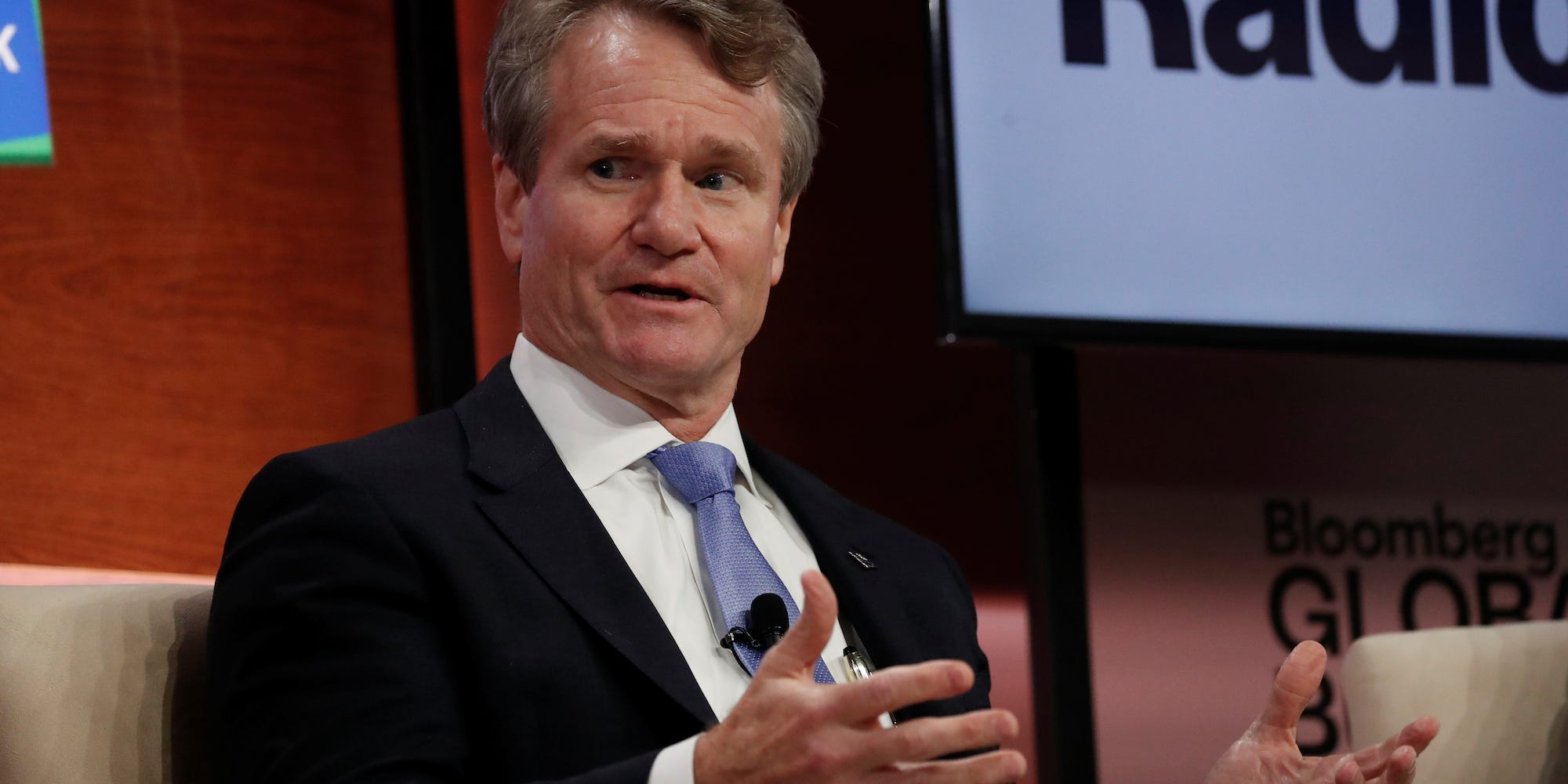Bank of America’s CEO predicted the US economy will fall into a “slight recession.” Brian Moynihan told investors that he sees signs of inflation “tipping down” during an earnings call. “Everything points to a relatively mild recession given the amount of stimulus that was paid to people and the money they have left over.” Loading Something is loading.
Thanks for signing up!
Access your favorite topics in a personalized feed while you’re on the go.
Bank of America CEO Brian Moynihan said inflation is showing signs of cooling, but the US economy will still face a recession.
During the firm’s quarterly earnings call, the Wall Street exec predicted a slight downturn as consumers remain in good shape.
“Everything points to a relatively mild recession given the amount of stimulus that was paid to people and the money they have left over,” Moynihan told investors on Tuesday. “At the end of the day, we don’t see the activity on a consumer side slowing at a pace that would indicate that, but we see commercial customers are being more careful.”
The prediction comes as others on Wall Street have warned of a steeper pullback on the back of the central bank’s monetary tightening campaign. The Federal Reserve has hiked interest rates nine times over the course of a year as inflation levels reached 40-year highs.
For its part, Bank of America forecasts annualized GDP contraction of around 0.5%-1% before seeing positive growth again in 2024.
“The fact that unemployment is still 3.5% [shows] full employment-plus,” he said. “And then the wage growth is slowing and tipping over so the signs of inflation are tipping down and it’s still there but that translates into relatively good activity, so we see a slight recession.”
Elsewhere, BlackRock CEO Larry Fink waved off recession concerns for 2023, citing the tremendous amount of stimulus flooding into the economy from the Infrastructure Bill, the Chips and Science Act, and the Inflation Reduction Act.
“Those three bills are a trillion dollars of stimulus over the next few years. Think about how many jobs infrastructure creates. Think about the demand for commodities as we build infrastructure,” the head of the world’s largest asset manager told CNBC last week.
